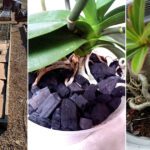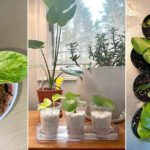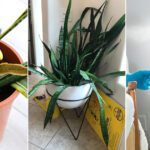Have you ever tried hydrogen peroxide for plant issues? Here are the reasons to use it for your indoor plants!
While your ordinary plant spray would only help you with a couple of things related to your plant, you would not only want to avoid using such chemical-filled sprays but would want something multi-purpose. If you think we just read your mind, we have the perfect alternative to your plant sprays! Any guesses? Well, we are talking about hydrogen peroxide, which is an all-in-one solution to various plant problems. So, read about why you should use hydrogen peroxide for indoor plants.
What is Hydrogen Peroxide?

As a small introduction to hydrogen peroxide, it is a chemical compound that is generally used as an antiseptic and bleach around the house when cleaning. However, you can easily use 3% hydrogen peroxide on your plants as long as it is diluted well. As they say, too much of a good thing is bad. Even hydrogen peroxide, with its range of benefits for your plants, can bleach or damage the leaves.
Reasons To Use Hydrogen Peroxide For Indoor Plants
1) Disinfecting Garden Tools

Though not directly related to the growth or issues of your indoor plant, this is an extremely important use of hydrogen peroxide. Ditch your usual cleaning method and disinfect your gardening tools with hydrogen peroxide. This is especially great if you are tending to plants with fungus or bacterial issues. All you need to do is mix 1 part of hydrogen peroxide with 2 parts of water in a spray bottle or bucket. Soak the garden tools for five to ten minutes and then rinse and dry.
2) Boosting Plant Growth

Hydrogen peroxide oxygenates the soil, thus, aerating it and providing better access to oxygen to your plant roots. Moreover, hydrogen peroxide also helps eliminate any bacteria or fungi in the growing medium, thus disinfecting it. A better supply of oxygen, in turn, helps in better plant growth, and to use it, you need to mix two and a half spoons with a gallon of water and spray it generously onto the potting soil of your plants. You must repeat this process in three or five-day intervals, spraying mainly on the roots as the plant grows.
3) Fighting Root Rot

Yet another way that hydrogen peroxide’s oxygenating properties are essential is if your plant is suffering from root rot. Though this compound cannot cure a plant of root rot or bring back the dead roots, it can make a huge difference if used early on. After removing the plant with root rot from its soil and cutting off the areas that have rot, you should saturate the root ball with a mixture of hydrogen peroxide with water in a 1:2 ratio. Then, repot the plant in a different container with potting soil sprayed with the same mix. Do not water until the soil is dry and be careful not to overwater.
Note: Hydrogen peroxide helps kill the bacteria that is responsible for root rot and rejuvenates the plants by increasing oxygen supply through the soil. Do not spray the mixture on the leaves.
4) Repelling Plant Pests And Fungal Infections

Similar to battling root rot, hydrogen peroxide can also fight off fungal infections and pests that may be eating on your plant. This compound’s disinfecting properties work well against eggs and larvae of pests and powdery mildew on foliage. Mix in four tablespoons of hydrogen peroxide in a large spray bottle with a pint of water and spray this mixture throughout the plant, from roots to leaves. You can use this method in conjunction with sticky traps to eliminate both adult pests and larvae, preventing the adults from laying eggs.
Pro Tip: When watering infected plants, flush them completely with a quarter cup of hydrogen peroxide with 4 cups of water. Wait until the mixture drains out from the drainage holes and the soil looks saturated throughout. Wait until dry for the next watering.
5) Can Help Speed Germination

Just like hydrogen peroxide can help adult plants grow, it can help seeds and seedlings, too! Though it is not always necessary, you can still facilitate better seed sprouting with this compound, as it leads to better soil oxygenation. After researching your particular seeds and determining if they would work well with hydrogen peroxide, soak your plant seeds for 30 minutes in 3% or less solution for 30 minutes. You can soak the seeds overnight if you use a mixture of 30 ml of hydrogen peroxide with 2 cups of water.
Studies are still being conducted on which species of plant seeds peroxide works best.






